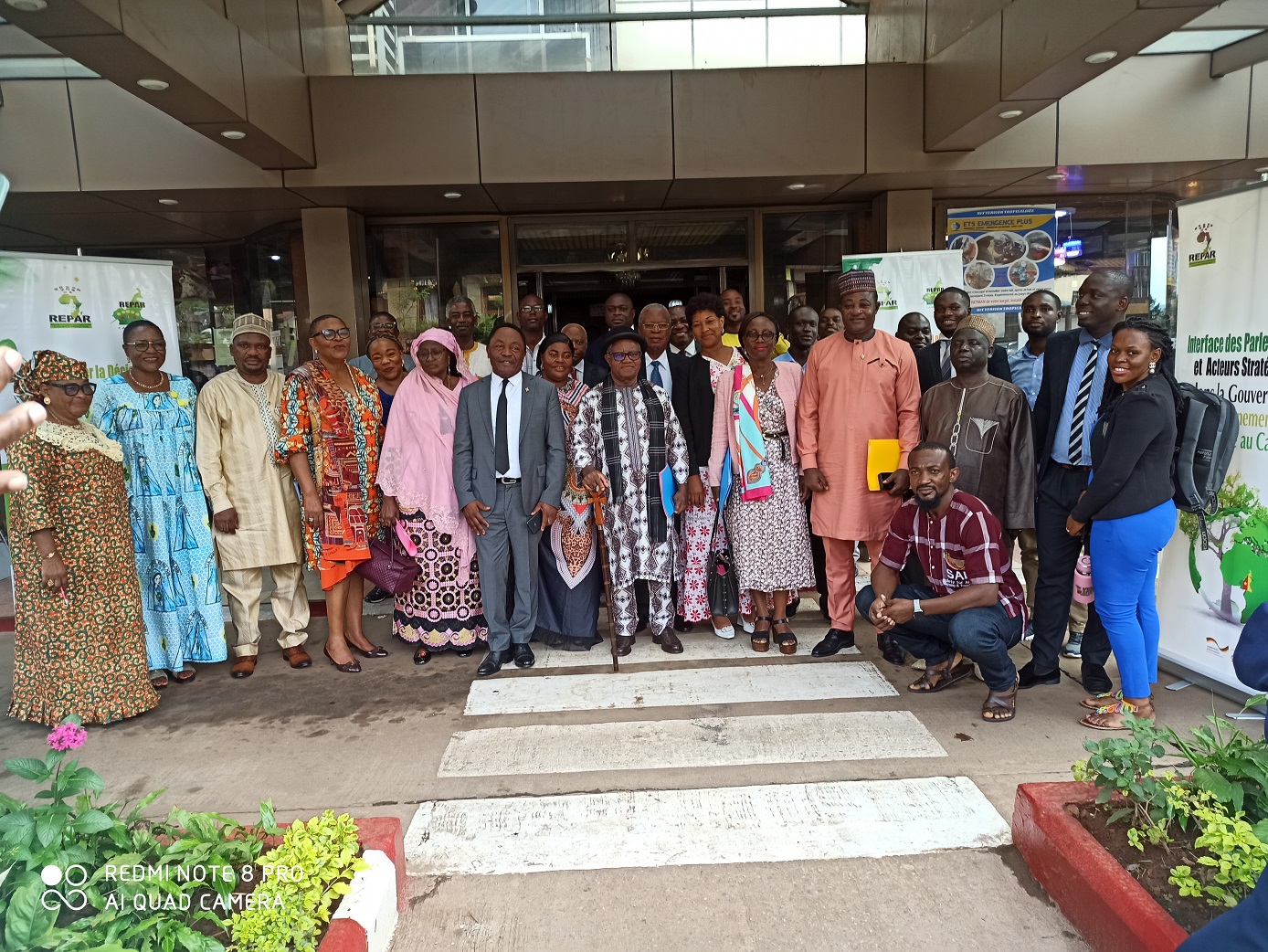Consultation meeting between parliamentarians and civil society organizations on the analysis of the draft Cameroon Forest Law
Forestry reform in Cameroon: The draft law revising Law No. 94/01 of January 20, 1994 governing forests, wildlife and fisheries is currently before Parliament. This is the culmination of a review process launched by the Government in 2008. REPAR, which has taken an active part in the related discussions for more than a decade, takes stock of the progress made in this text with a view to better prepare parliamentarians for its examination. After an initial meeting held on Friday June 21 at the Yaounde Conference Center, parliamentarians held a discussion yesterday, Wednesday June 26 at the “Hôtel des Députés” with a group of civil society organizations, who carried out a detailed critical examination of the bill.
Although the bill aims to improve management of the forest and wildlife heritage, broadens the scope of community action with the creation of community protected areas, establishes a better link with decentralization, and enshrines the sub-regional requirement for local wood processing, which is warmly welcomed, a number of provisions give rise to reservations and call for improvements. These include: coherence with the land tenure system and other land-use legislation; the questionable feasibility of forest management guidelines; the status of areas allocated to community management, and clarification of the rights they are recognized as having in the sharing of benefits from the exploitation of forest and wildlife resources and traditional knowledge associated with genetic resources; alignment with new international dynamics such as environmental services…
At the end of the discussions, it was recommended that:
-Parliamentarians make use of all the documents made available to them, in order to develop the necessary arguments;
-A permanent exchange framework be created to ensure interaction between parliamentarians and experts throughout the bill review process;
-REPAR should rely on parliamentarians to raise major issues arising from the examination of the bill, both during its examination by the relevant committee in the Senate, and during the plenary sessions when it is adopted.



